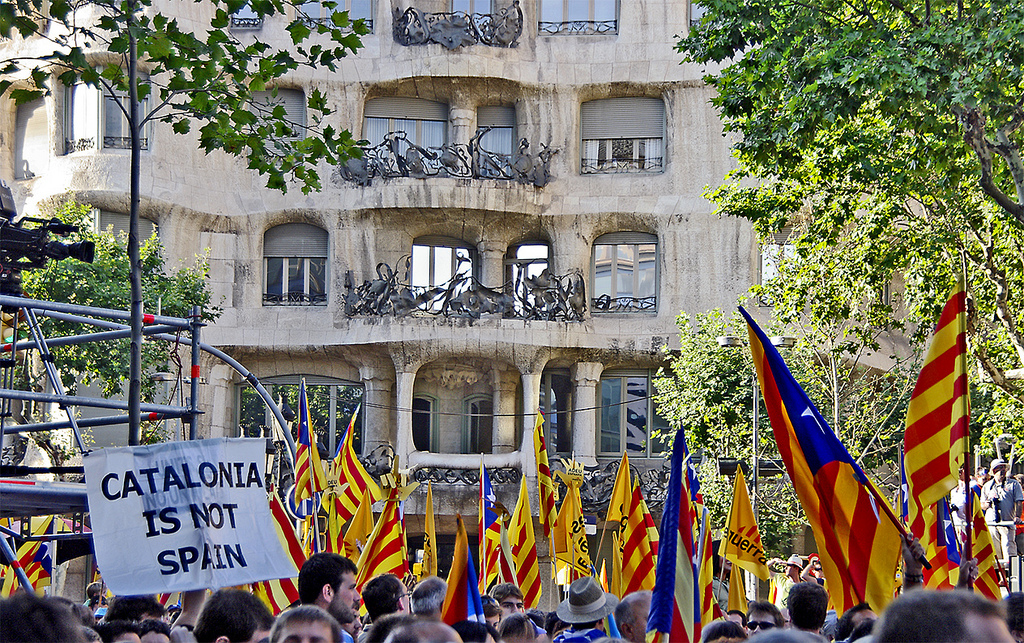"Now we see a too divided community in Catalonia. Catalonia will remain extremely fragmented, regardless of the result," said Borja Lasheras, the head of the Spanish office of the European Council on Foreign Relations.
The elections will be held after a period of calm after the chaotic scenes in October. Then, the regional government declared independence after a referendum held in spite of Spain's attempts to ban voting in early October.
After that, the Spanish government imposed direct control of Catalonia, ousting the president and the government of Catalonia and calling for new elections, and so a political crisis occurred. Moreover, several politicians supporting independence, including the President of the Republic of Catalonia Carles Puigdemont, fled to Belgium when Spain issued a warrant for their arrest on serious charges of anti-government agitation.
Puigdemont remains in forced exile in Belgium, where he spoke before the vote. Former deputy Oriol Junqueras disputes the election while in prison, as he too faces similar charges.
At present, it becomes clear from the results of the polls that three parties that have gained independence will receive 67 or 68 seats (the number required for the majority) in the parliament out of 135 seats.
The independent coalition of Junts per Catalunya, led by Puigdemont, is an advocate of electoral division, and yet there is now a significant split involving several parties and politicians supporting independence and opposed to Puigdemont and his former deputy Junqueras.
Elections in Catalonia are important, because political uncertainty can affect Spain's recent bright economic prospects. Last week, the Bank of Spain said that in 2017 GDP grew by 3.1%, but forecasted an weaker increase of 2.4% in 2018.
source: reuters.com
The elections will be held after a period of calm after the chaotic scenes in October. Then, the regional government declared independence after a referendum held in spite of Spain's attempts to ban voting in early October.
After that, the Spanish government imposed direct control of Catalonia, ousting the president and the government of Catalonia and calling for new elections, and so a political crisis occurred. Moreover, several politicians supporting independence, including the President of the Republic of Catalonia Carles Puigdemont, fled to Belgium when Spain issued a warrant for their arrest on serious charges of anti-government agitation.
Puigdemont remains in forced exile in Belgium, where he spoke before the vote. Former deputy Oriol Junqueras disputes the election while in prison, as he too faces similar charges.
At present, it becomes clear from the results of the polls that three parties that have gained independence will receive 67 or 68 seats (the number required for the majority) in the parliament out of 135 seats.
The independent coalition of Junts per Catalunya, led by Puigdemont, is an advocate of electoral division, and yet there is now a significant split involving several parties and politicians supporting independence and opposed to Puigdemont and his former deputy Junqueras.
Elections in Catalonia are important, because political uncertainty can affect Spain's recent bright economic prospects. Last week, the Bank of Spain said that in 2017 GDP grew by 3.1%, but forecasted an weaker increase of 2.4% in 2018.
source: reuters.com





